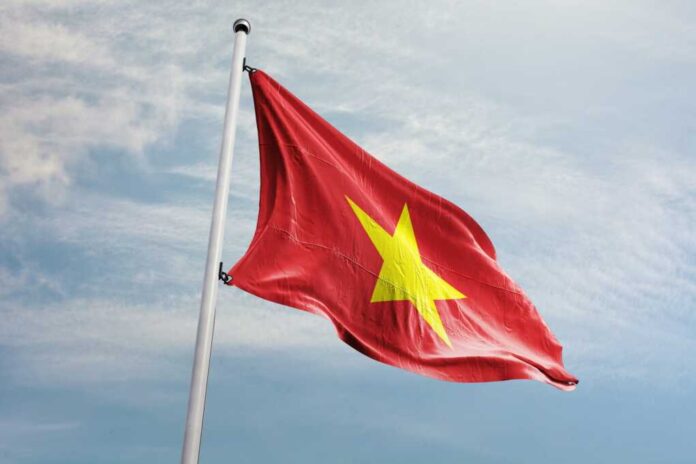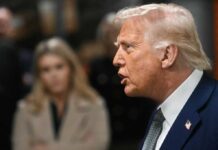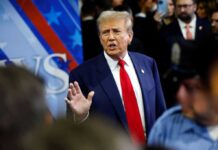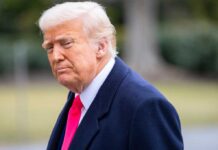
Vietnam has offered to eliminate all tariffs on U.S. imports after Trump slapped a 46% duty on Vietnamese goods, triggering a new wave of international trade chaos and market turbulence.
AT A GLANCE
- Trump levies 46% tariff on Vietnamese imports under new “reciprocal” trade policy
- Vietnam’s leader offers to cut U.S. tariffs to zero in hopes of a new trade deal
- China retaliates with 34% tariffs; tensions threaten to spark renewed trade war
- Dow plunges, European markets slide, and U.S. small-caps hit bear territory
- Economists warn of inflation, recession risk amid escalating global tariff fallout
Vietnam Offers Tariff Concession After Trump Escalation
In a bold move signaling the mounting influence of Trump’s hardline trade policy, Vietnam has proposed slashing its tariffs on American goods to zero. The offer came directly from Communist Party General Secretary To Lam, who called President Trump following the announcement of a steep 46% tariff on Vietnamese imports. Trump confirmed the proposal, stating he was “thanked on behalf of our country” and looked forward to future talks, as reported by The Epoch Times.
The Vietnamese move came amid sweeping tariff hikes across Southeast Asia. As part of Trump’s broader “reciprocal tariff” doctrine, countries now face a baseline 10% import duty, with higher rates targeting those with significant trade surpluses or non-tariff barriers. Vietnam, which enjoyed rapid export growth to the U.S. in recent years, is one of the hardest-hit nations in this crackdown.
China Strikes Back With Retaliatory Duties
Not everyone is rolling over. China responded swiftly to Trump’s tariffs by imposing a 34% duty on a wide range of American goods. Trump acknowledged the rising tensions, noting, “China will probably say, ‘We’ll approve a deal, but will you do something on the tariff?’” Nevertheless, White House adviser Peter Navarro insists this isn’t about leverage. “This is not a negotiation,” he told CNBC, framing the tariffs as a long-overdue correction to unfair global trade practices.
Trump claimed “every country has called us,” suggesting his policies are forcing nations to the table. Whether these calls translate to meaningful concessions—or simply signal global resistance—remains to be seen.
Watch analysis of the global tariff escalation.
Financial Markets in Freefall
Investors weren’t nearly as upbeat. News of the tariffs sent global markets tumbling. The Dow dropped sharply, small-cap stocks officially entered bear market territory, and European markets sank 2.7%. The ripple effect hit specific sectors hard: Boeing’s stock dipped amid global uncertainty, while discount retailer Dollar Tree saw losses due to its heavy reliance on Chinese imports. Ironically, Dollar General, with less exposure, rallied in contrast.
Wall Street voices warned of potential economic fallout. Goldman Sachs executive Lindsay Rosner told CNBC, “They’ve got to push back here because I think the big word of ‘stagflation’ is real.” Concerns are growing that the Federal Reserve could struggle to manage rising prices alongside slowing growth—a dangerous recipe for economic stagnation.
Tariffs Hit Industries and Consumers Alike
Beyond financial volatility, the tariffs are already impacting manufacturing. Stellantis has halted vehicle production in Canada and Mexico. Nissan’s luxury brand Infiniti has paused two crossover models at its Mexican facilities due to supply disruptions.
Meanwhile, ordinary consumers may soon see price hikes on everything from bananas and toilet paper to luxury watches and imported spirits. JPMorgan analysts predict luxury goods like Swiss watches and cognac could become notably more expensive. The Business Roundtable, composed of CEOs from top U.S. companies, has come out strongly against the tariffs. “[They all] think this is a huge mistake,” one executive told CNBC.
As the administration doubles down on its tough stance, the U.S. faces a pivotal question: will the pain of higher tariffs lead to long-term gains—or simply deepen the risk of economic fallout and global isolation?





























